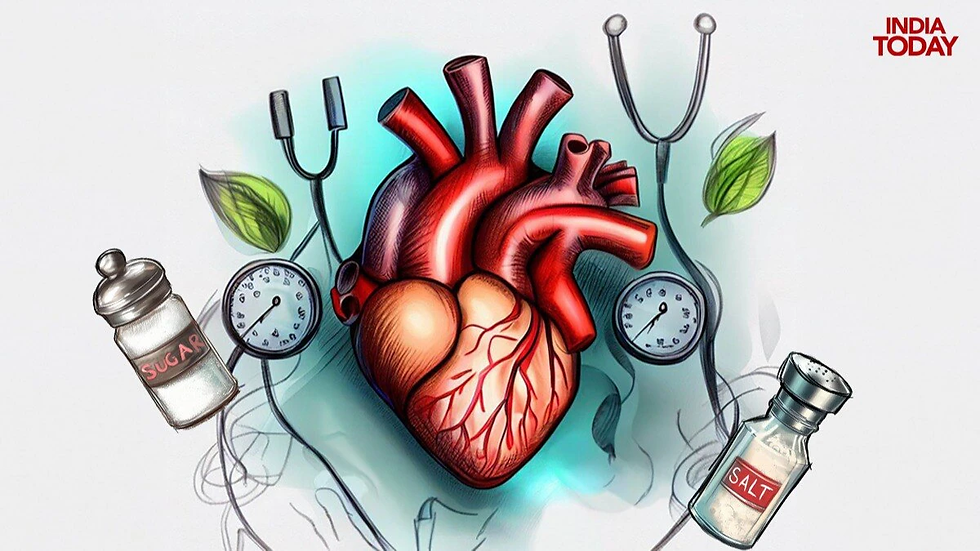Impact of Sugar, Salt, Unhealthy Fats on Heart
- alinanaqvi06
- Feb 13, 2024
- 2 min read
Over the past two decades, the increasing prevalence of heart disease has highlighted the complex link between diet and cardiovascular health. Extensive research emphasizes the detrimental effects of high sugar, salt, and unhealthy fat consumption on heart health. Understanding these mechanisms is essential for effective prevention and management strategies. Excessive sugar intake, especially from processed foods and sugary drinks, significantly elevates heart disease risk.
High sugar consumption triggers a series of metabolic changes in the body, which can lead to obesity, insulin resistance, and type 2 diabetes. Additionally, diets high in sugars provoke chronic inflammation, a significant factor in atherosclerosis, the gradual narrowing and hardening of arteries associated with various cardiovascular diseases.
Excessive sugar intake fosters plaque buildup in arterial walls, compromising blood Despite the kidneys' role in regulating blood pressure through sodium excretion, a diet high in sodium overwhelms this mechanism, leading to hypertension and placing additional strain on the heart and blood vessels, increasing the likelihood of coronary artery disease, heart failure, and other cardiovascular complications.
Furthermore, unhealthy fats, such as saturated and trans fats commonly found in fried foods and processed snacks, elevate levels of LDL cholesterol, known as "bad" cholesterol. These dietary risks underscore the critical importance of balanced nutrition for maintaining cardiovascular health and preventing associated complications.
Practical Steps to Reduce the Risk of Heart Disease and Diabetes:
Weight Management:
Shed excess pounds through healthy eating and regular exercise.
Dietary Habits:
Opt for a balanced diet rich in fiber from fruits, vegetables, and whole grains.
Minimize consumption of highly processed foods high in sugar and unhealthy fats.
Physical Activity:
Aim for at least 30 minutes of moderate exercise daily to maintain cardiovascular health.
Smoking Cessation:
Quit smoking to reduce the risk of heart disease and diabetes-related complications.
Stress Management:
Implement strategies to manage stress effectively, as chronic stress can lead to high blood pressure and elevated blood glucose levels.
Quality Sleep:
Ensure adequate and restful sleep to regulate stress hormones, supporting overall health and reducing the risk of heart disease and diabetes
Regular physical activity, stress management, and medical support are crucial for heart health. By adopting these measures, individuals can reduce heart disease and diabetes risk, enhancing overall well-being and resilience.
Sources -Times of India





Kommentare